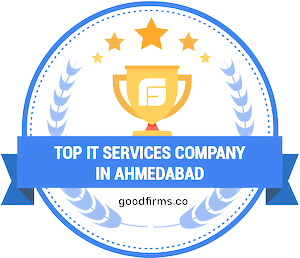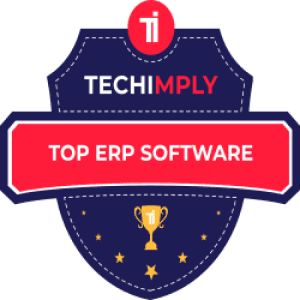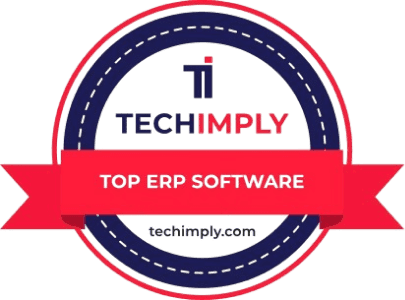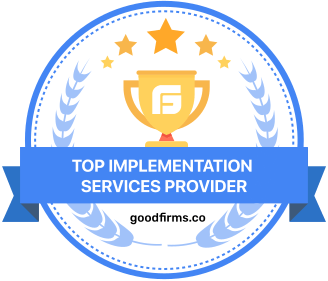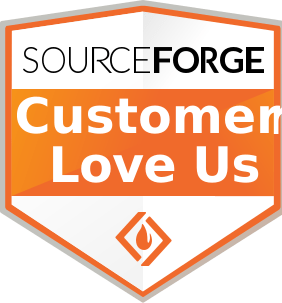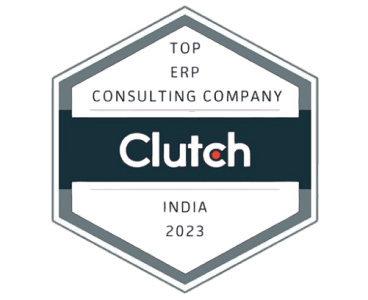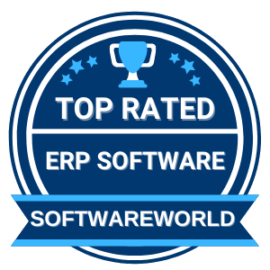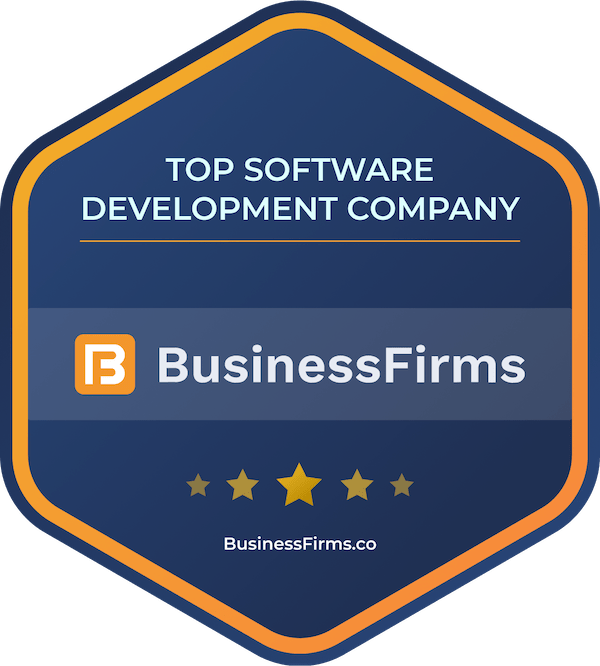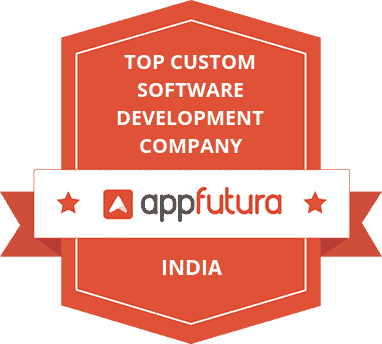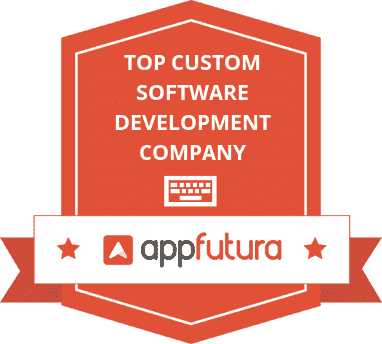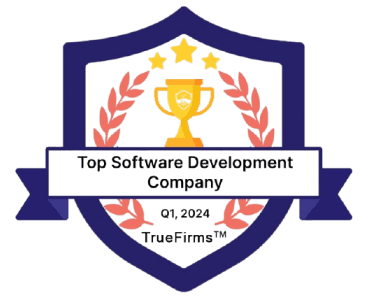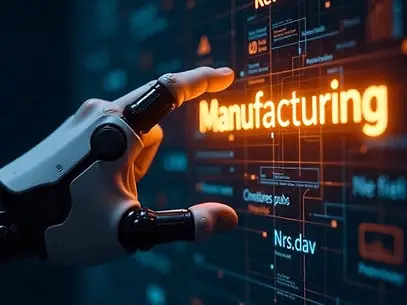Introduction
The manufacturing sector faces multiple challenges simultaneously. These include regulatory pressure, changing customer behavior, supply chain management, and balancing revenue and expenses. Increasing competition and employee retention are other hurdles for manufacturers. Here, Enterprise Resource Planning (ERP) solutions can lend a helping hand to them. This post discusses the importance of ERP software for manufacturing.
Let’s start with the basic information about ERP solutions and how they are useful for different industry sectors.
Overview of ERP Solutions and Their Impact on Industries
Enterprise Resource Planning, aka ERP, solutions are integrated applications for managing and automating business processes across various departments in the company. Modern industries can streamline their core operations, manage workflows, improve efficiency, and make informed decisions with the help of feature-rich ERP software. An ERP system acts as a platform that centralizes data for enhancing visibility, promoting automation, and improving productivity.
ERP solutions consist of several core components including financial management, supply chain management, customer relationship management, human resources, and production management. These solutions cover all the departments of the company irrespective of its size and industry sectors. An advanced ERP solution gives a complete and comprehensive picture of the company on a single dashboard.
ERP systems are beneficial for all industry sectors but healthcare, retail, and manufacturing are their top beneficiaries. ERP can drive digital transformation in the manufacturing sector while enabling manufacturers to get rid of several challenges. ERP solutions can assist the manufacturing industry in gaining control over inventory and supply chains while offering the advantage of automation. Let’s dig deep into the impact of ERP in the manufacturing industry.
How ERP Drives Digital Transformation in Manufacturing Sector
A tailored manufacturing ERP software can handle various core processes of the industry effectively. It can drive digital transformation in the manufacturing sector in multiple ways including.
Streamlined Operations
ERP can automate routine and repetitive tasks like invoicing, payroll, and purchase orders. This can streamline workflows and save a lot of time for employees. Additionally, Production scheduling software can help manufacturers to allocate resources efficiently to meet all the deadlines. This can result in the timely completion of high-quality products.
Improved Decision-making
Production Manufacturing Software can be a part of an ERP system or manufacturing companies can integrate this software into their business system. It is useful for getting data-driven insights about the production. Advanced reporting tools in the ERP solution are useful in gaining valuable information on KPIs for improving the decision-making process.
Enhanced Visibility
Manufacturing inventory tracking system is useful to get real-time visibility into inventory levels. It can enable manufacturers to get rid of situations like overstock and stockouts. Furthermore, predictive analytics tools in the ERP solution can help predict demands accurately. Such increased visibility can help manufacturing companies manage supply chains effectively.
Effective Compliance
A production management system and a real-time reporting feature can reduce the risk of non-compliance significantly. As companies can get accurate reports for auditing and other regulatory purposes, they can avoid penalties effectively. All you can get are accurate records and reports on product lifecycles for better compliance.
Increased Satisfaction
A user-friendly manufacturing ERP software can improve order fulfilment and delivery times. Employees also find it useful for saving their effort and increasing individual efficiency. As a result, manufacturing companies can offer better customer services and gain a competitive edge over other companies.
Moreover, ERP software can promote innovation in the sector. Whether it is designing, engineering, or prototyping, manufacturing ERP solutions support innovative approaches and effective collaboration. These solutions also bring automation to the core processes to increase the efficiency and profitability of the company.
However, it is essential to choose the right cloud-based ERP for Manufacturing. Let’s discuss some useful tips for choosing the most suitable manufacturing ERP for your company.
How to Choose the Right Manufacturing ERP Software
Selecting the right manufacturing ERP system is essential to leverage its benefits. Here we mention some factors you should consider to get the right software for your company-
Scalability and Flexibility
It is beneficial for choosing a solution with high scalability and flexibility. Such ERP solutions can adapt to changing business needs more effectively over a period, and you need not invest more money.
Customization Options
A pre-configured ERP system is cost-effective and quick to use, but it may need some customization to align with your business processes. Therefore, you should choose the solution with more customization options.
Vendor Support
This is one of the most important factors to consider while selecting the ERP system for your manufacturing company. Extensive technical assistance and regular updates are some most essential aspects of the ERP.
Integration Capability
An ERP should integrate seamlessly with other business systems including CRM and Manufacturing stock management software. Strong integration capabilities can help you make the most of the ERP solution.
Apart from these factors, it is better to opt for a cloud-based ERP for manufacturing sector. This is because cloud-powered ERP offers more scalability and better accessibility. Finally, you should consult a reputed ERP solution provider before selecting the software for your manufacturing enterprise.
Real-World Use Cases of Manufacturing ERP Solutions
Here are two real-world examples showing the importance of ERP solutions in the manufacturing industry-
1. Automotive Manufacturing
ERP plays a crucial role in managing supply chains and optimizing production schedules through production manufacturing software. It can monitor inventory and optimize production while maintaining high-quality automotive parts or accessories.
2. Electronics Manufacturing
Rapid product cycles and high-volume production are key characteristics of electronics manufacturing companies. ERP software can help electronics manufacturers manage BOM (Bill of Materials) and control inventory. It also facilitates traceability for product components.
Simply put, ERP software can take manufacturing companies to a new level. However, it is imperative to implement it successfully to gain its advantage.
Top Tips for Successful Implementation of ERP Software for Manufacturing
A successful ERP implementation starts with careful planning. You need to define the goals and objectives that you want to achieve through ERP software. Moreover, these goals should align with your long-term business strategy. You can make a blueprint containing features you need and pain points that you want to address through an ERP solution.
Another important point is to involve key stakeholders from different departments. In other words, you need to make a cross-departmental team of managers to ensure a smooth implementation. Participation of employees can assist you to get the ERP solution as per their needs and you can gain their support.
Finally, a trusted ERP software partner is essential. You should also arrange training sessions and support users to maximize the benefits of manufacturing ERP systems. User manuals and 24×7 technical assistance can help users resolve their queries quickly. All these points will help you get an effective solution for your manufacturing industry.
Future Trends of Manufacturing ERP Solutions
Evolving technology has paved the way for a bright future in manufacturing ERP. Talking about promising trends, cloud-based ERP for manufacturing will gain ground swiftly in the coming years. As cloud technology advances, manufacturers can get more flexible and scalable solutions that are cost-effective.
Another trend to watch is the integration of AI and ML technologies into Production tracking software. Both these futuristic technologies can analyze vast data to identify patterns and predict future trends for the production process. It will also help manufacturers make informed decisions based on demand forecasting.
IoT (Internet of Things) will also play a vital role in the future of the ERP solution for manufacturing. The integration of connected devices into the production management system can give manufacturers real-time insights into the process and equipment performance. This data-driven approach is also useful in process optimization.
Finally, the rise of the Industry 4.0 concept will make manufacturing ERP more powerful with the integration of robotics and augmented reality. ERP systems for the manufacturing sector will increase productivity, efficiency, and flexibility. We can expect that all these trends will boost Digital Transformation in Manufacturing industry.
Concluding Remarks
ERP software for the manufacturing industry can be a game-changer for companies irrespective of their sizes and business models. These solutions can increase efficiency, and productivity, and boost innovation to drive digital transformation. Hope this detailed guide on manufacturing ERP software will help you leverage all its benefits through the effective implementation of a cloud-based solution.
Matiyas is a leading and reputed manufacturing ERP software provider. We assist you in streamlining the processes of your manufacturing industry with feature-rich ERP solutions. Our in-house team of experienced professionals can offer the best-in-class services in the domain of ERP ranging from consultation to implementation and support to maintenance. Contact us to optimize your company’s key business processes with advanced manufacturing ERP solutions.
FAQ's
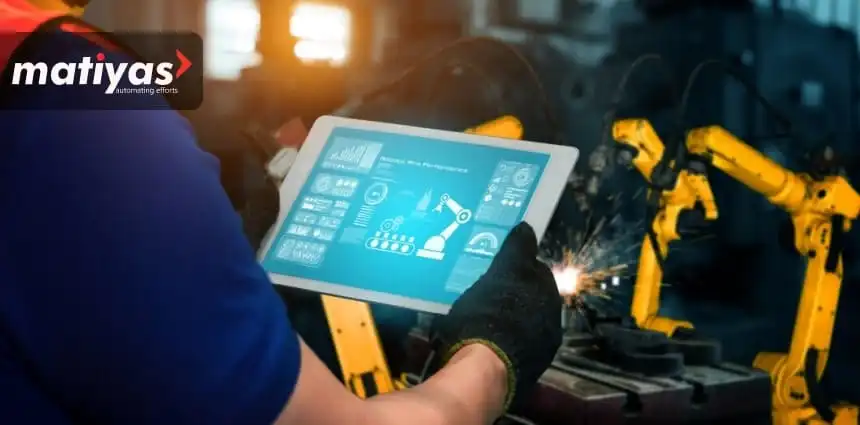
 "I am quite happy with the ERP solution provided by Matiyas. Before we implemented their system, our organization was struggling with inefficient processes and fragmented data. Their customized ERP solution not only streamlined our workflows but also provided real-time insights into our operations. The customer support from Matiya's Team has been exceptional throughout the journey."
"I am quite happy with the ERP solution provided by Matiyas. Before we implemented their system, our organization was struggling with inefficient processes and fragmented data. Their customized ERP solution not only streamlined our workflows but also provided real-time insights into our operations. The customer support from Matiya's Team has been exceptional throughout the journey."
 "Matiyas offered us a functionally strong and automated solution to address the end-to-end needs of our business operation. This solutions will be able to scale and grow our business and it will surely reduce manual interventions."
"Matiyas offered us a functionally strong and automated solution to address the end-to-end needs of our business operation. This solutions will be able to scale and grow our business and it will surely reduce manual interventions."
 "Matiyas offered us a functionally strong and automated solution to address the end-to-end needs of our business operation. This solutions will be able to scale and grow our business and it will surely reduce manual interventions."
"Matiyas offered us a functionally strong and automated solution to address the end-to-end needs of our business operation. This solutions will be able to scale and grow our business and it will surely reduce manual interventions."
 "I wanted to thank you Matiyas team to set-up the ERP system based on our business process. The assistance was invaluable in helping my company get as we requested. We sincerely appreciate your efforts and thanks again Matiyas team to provide us a best solution with the erp system."
"I wanted to thank you Matiyas team to set-up the ERP system based on our business process. The assistance was invaluable in helping my company get as we requested. We sincerely appreciate your efforts and thanks again Matiyas team to provide us a best solution with the erp system." "Go ahead with Matiyas and Capture data at lowest level and you can build | report | analyse | get insights across business dimension to take informed decisions."
"Go ahead with Matiyas and Capture data at lowest level and you can build | report | analyse | get insights across business dimension to take informed decisions."
 "The implementation of the Matiyas ERP solution has revolutionized our workflow. The automation of previously manual processes has not only saved us time but also significantly reduced errors. It’s like having an extra set of hands on our team, streamlining operations and boosting productivity"
"The implementation of the Matiyas ERP solution has revolutionized our workflow. The automation of previously manual processes has not only saved us time but also significantly reduced errors. It’s like having an extra set of hands on our team, streamlining operations and boosting productivity"
 "We would definitely encourage anyone willing to get services from Matiyas. they are honest hardworking and smart team. they stretch them maximum to achieve success for their clients."
"We would definitely encourage anyone willing to get services from Matiyas. they are honest hardworking and smart team. they stretch them maximum to achieve success for their clients."
 "Matiyas system has been helpful to us for execution of our day-to-day operations in scholarship. The team has been very supportive and always available to accommodate with any challenges that we have faced. Overall, we had good experience working with Matiyas!"
"Matiyas system has been helpful to us for execution of our day-to-day operations in scholarship. The team has been very supportive and always available to accommodate with any challenges that we have faced. Overall, we had good experience working with Matiyas!"
 "We at I2E Consulting were looking for Healthcare Module consultation in ERPNext and we came across Matiyas Solutions website. From managing the business to adding his Expertise in Healthcare module, Hasan has done it all single handedly. All our Queries were solved in a timely manner. Regular follow ups were done."
"We at I2E Consulting were looking for Healthcare Module consultation in ERPNext and we came across Matiyas Solutions website. From managing the business to adding his Expertise in Healthcare module, Hasan has done it all single handedly. All our Queries were solved in a timely manner. Regular follow ups were done."
 "Our company is very new to ERP, we tried to implement ERP by ourselves, however along the way we found struggles as we are very new. We are lucky HasanAli from Matiyas helped us in many ways, from a simple question to very complex developments and deployments. Rates are reasonable too! We are happy that Matiyas is there to help us."
"Our company is very new to ERP, we tried to implement ERP by ourselves, however along the way we found struggles as we are very new. We are lucky HasanAli from Matiyas helped us in many ways, from a simple question to very complex developments and deployments. Rates are reasonable too! We are happy that Matiyas is there to help us."
 "The folks at Matiyas Software are the best. They're skilled, work quickly and professionally, and were able to tailor ERP to our exact specifications. Would use them again."
"The folks at Matiyas Software are the best. They're skilled, work quickly and professionally, and were able to tailor ERP to our exact specifications. Would use them again."
 "Very knowledgeable and prompt and professional. I highly recommend Matiyas for any ERP customizations."
"Very knowledgeable and prompt and professional. I highly recommend Matiyas for any ERP customizations."









